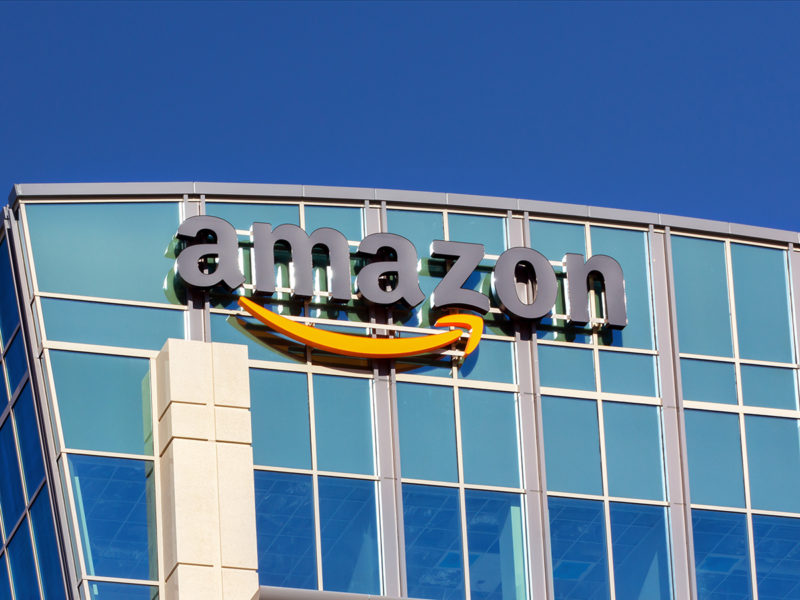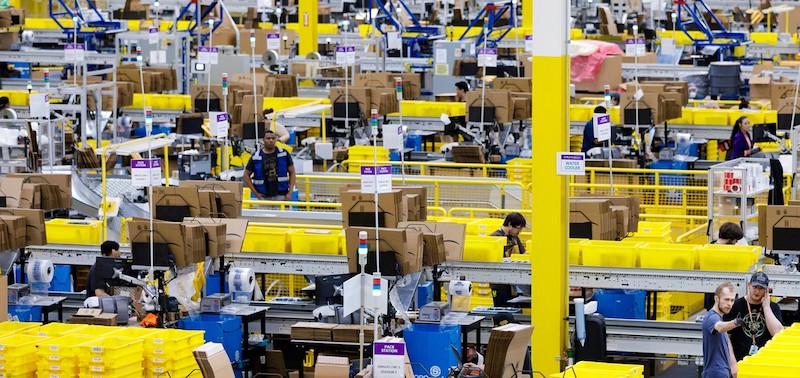In just three years, Amazon Business became a top 20 B2B distributor and reached more than $10 billion in annualized sales. It’s no surprise that Amazon is on the minds of just about every B2B distributor across all verticals.
But while Amazon Business sells across a wide variety of products, it doesn’t sell all products equally well. To measure how Amazon performs across product categories, Applico launched its Marketplace Tracker in 2017. We recently published a report that contains data on the total number of sellers across nine product categories: industrial, automotive, hardware, lighting, tools, material handling, raw materials, janitorial and safety. We captured that data over the course of 21 months. It reveals vital insights into what Amazon Business sells best and where it’s still struggling.
This analysis arrives at a critical juncture in the B2B distribution industry. Earlier this year, Bank of America analyst Justin Post estimated that by 2021 the market for eCommerce B2B will reach $1.4 trillion. However, he also estimates that Amazon Business will capture 10% of the U.S.’s online B2B market by that same year. That outcome seems very plausible. That is, unless B2B distributors fight back.
Amazon Business is thriving — but it’s also vulnerable. There are actionable strategies for B2B distributors of different sizes and in different verticals to take in order to remain competitive in the age of Amazon. A high-level view of Applico’s analysis reveals some interesting trends:
- Amazon’s five largest product categories are industrial, automotive, tools, hardware and lighting. These are largely lightweight, easily shipped items.
- Industrial, the largest category with 57,580 sellers, is also the second-fastest growing at 30.4% growth.
- At 39.3% growth, janitorial is the fastest-growing category, even though it is the second smallest with 11,250 sellers.
- The two smallest categories are raw materials and material handling, though each boast about 27% growth in 2018. These are primarily bulky items that are difficult to ship.
As the data reveal, Amazon hasn’t quite figured out how to sell bulky items, which is good news for distributors who already have logistic infrastructures that can handle bulk. Of course, it’s only a matter of time before Amazon solves that issue as well. Indeed, Amazon Freight launched quietly in 2018. And for those distributors who sell primarily lightweight supply such as hardware, this data makes the imperative to build a marketplace even clearer.
A New Strategy
Adding a few hundred SKUs to an online store via traditional supply relationships won’t cut it anymore. The game has changed.
And the game requires defensive tech strategies to protect pricing and product data from new competitors like Amazon. For example, distributors should consider putting up digital “curtains” that block Amazon’s (and others’) bots from scraping their eCommerce stores for product and pricing data.
With the emergence of Amazon Business, the B2B distribution landscape has changed, but it isn’t as alien as some commentators would have you believe. With the right data and strategy, traditional distributors can adapt by leveraging their existing supply relationships and logistics infrastructure into a worthy Amazon competitor.
Amazon Business Teardown offers a detailed look at the B2B marketplace’s seller data, and offers guidance in how to leverage that data into a winning market strategy. The report is available for free download here.
Co-author of the best-selling Modern Monopolies and regular speaker on platform innovation, Alex Moazed founded Applico in 2009 as the first platform innovation company providing advisory services globally to build, execute and scale platform businesses. He works directly with Fortune 500 C-suites and boards to help them build or buy their own platform businesses. He often speaks on the ways distributors could beat Amazon and other emerging industry disruptors by developing their own platform strategies. Alex will be a featured speaker at MDM's Digital Distributor Summit in Denver, June 18 -20.
Related Posts
-
Though the fallout for distributors from COVID-19 continued to be a hot topic in April,…
-
Amazon Businesss growth is not equally distributed. It has excelled in certain areas of B2B…
-
Amazon's new 820,000 square-foot site in the city of Pflugerville will create 1,000 new, full-time…




